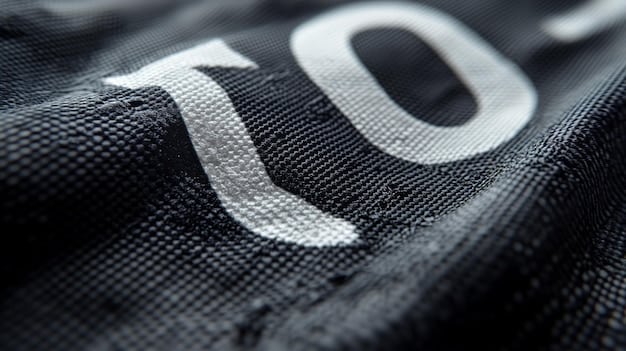King’s League Revenue Streams: A US Market Breakdown

King’s League Revenue Streams: A Breakdown of How the League Generates Income in the US Market explores the various revenue streams, from broadcasting rights and sponsorships to merchandise sales and ticket revenue, that fuel the King’s League within the competitive United States sports landscape.
The King’s League Revenue Streams: A Breakdown of How the League Generates Income in the US Market has rapidly gained popularity, attracting a large audience and significant investment. But how exactly does this innovative league generate its revenue in the US?
King’s League’s US Expansion and Revenue Generation
As the King’s League establishes a stronger foothold in the US, understanding its revenue generation model becomes increasingly crucial. This section delves into the overarching strategies employed to secure financial stability and growth within the American market.
The league’s approach to revenue is multifaceted, focusing on capitalizing its unique format and appeal to reach a diverse audience.
Strategic Partnerships
Forging strong partnerships is a cornerstone of the King’s League’s revenue strategy. These alliances provide financial backing, promotional opportunities, and access to new markets.
- Sponsorship Deals: Partnering with well-known brands generates significant revenue and enhances brand awareness.
- Media Partnerships: Collaborating with major media outlets ensures broad coverage and exposure for the league.
- Technology Integration: Working with tech companies to improve streaming capabilities and fan engagement enhances the viewing experience.

Ultimately, these strategic partnerships collectively contributes to the league’s growing financial foundation.
Broadcasting Rights and Media Deals
Broadcasting rights are a primary source of revenue for the King’s League, particularly as it expands its presence in the United States. Securing lucrative media deals is essential for reaching a wider audience and boosting financial gains.
These deals not only provide immediate revenue but also increase the league’s visibility and attract more significant sponsorship opportunities.
Negotiating Lucrative Agreements
Negotiating broadcasting deals involves careful assessment of market value, audience reach, and the potential for long-term growth.
- Exclusive Streaming Rights: Selling exclusive rights to streaming platforms can generate substantial income.
- Television Broadcasts: Partnering with television networks ensures extensive coverage and exposure.
- International Rights: Licensing broadcasting rights to international markets further diversifies revenue streams.
These strategies ensure that the King’s League maximizes its broadcasting revenue and enhance its global presence.
Sponsorship and Advertising Revenue
Sponsorships and advertising are critical revenue streams for the King’s League, offering valuable financial support and brand exposure. The US market presents a unique opportunity to attract high-value sponsorships due to its diverse and engaged audience.
By strategically leveraging its growing popularity, the league can secure lucrative deals that enhance its financial stability.

Attracting Key Sponsors
Attracting key sponsors requires demonstrating the league’s value proposition, including its reach, engagement rates, and target demographic.
The league can attract significant investment from brands eager to tap into this growing market by highlighting these aspects.
The King’s League’s approach to sponsorship demonstrates its understanding of US consumer culture and its ability to deliver value to its partners.
Merchandise Sales and Licensing Agreements
Merchandise sales and licensing agreements represent another important revenue stream for the King’s League in the US market. These avenues allow fans to express their support through tangible products, while generating additional income for the league.
Successful merchandise strategies can deepen fan engagement and bolster the brand’s visibility.
Expanding Product Lines
Expanding product offerings beyond basic apparel can significantly boost merchandise sales. This includes lifestyle items, collectibles, and limited-edition products.
- Apparel: Offer a wide range of clothing, including jerseys, t-shirts, and hats.
- Collectibles: Introduce limited-edition items such as signed memorabilia and figurines.
- Accessories: Sell accessories like phone cases, keychains, and bags to cater to diverse consumer preferences.
By broadening Its product range, the King’s League can reach a wider audience and maximize merchandise revenue in the US.
Ticketing and Fan Engagement
Ticketing revenue and fan engagement are vital components of the King’s League’s financial model in the United States. Creating a compelling live event experience drives ticket sales and fosters a loyal fanbase, contributing to long-term revenue growth.
By focusing on enhancing the fan experience, the league can boost ticket sales and create lasting memories for its supporters.
Enhancing the Fan Experience
Enhancing the fan experience involves creating memorable moments both inside and outside the stadium.
- Interactive Activities: Organize pre-game activities, fan zones, and contests during breaks.
- VIP Packages: Offer premium seating, meet-and-greets, and exclusive merchandise for VIP ticket holders.
These elements collectively create a dynamic and enjoyable atmosphere, encouraging repeat attendance and positive word-of-mouth.
Digital Revenue Streams and Online Engagement
In today’s digital age, generating revenue through online platforms is essential for sports leagues. The King’s League leverages various digital channels to engage fans, create new income streams, and extend its brand reach in the US market.
By prioritizing digital engagement and innovation, the King’s League can future-proof its revenue streams and expand its influence.
Monetizing Online Content
Monetizing online content involves creating valuable and engaging content that attracts a wide audience and generates revenue through various means.
- YouTube Revenue: Creating engaging content like behind-the-scenes footage, player interviews, and match highlights.
- Digital Subscriptions: Offering premium content through subscription models, providing fans with exclusive access to matches, analyses, and behind-the-scenes material.
These strategies ensure that the King’s League remains at the forefront of digital engagement and revenue generation.
| Key Point | Brief Description |
|---|---|
| 💰 Broadcasting Rights | Deals with streaming and TV networks generate significant income. |
| 👕 Merchandise Sales | Revenue from jerseys, accessories, and collectibles. |
| 🤝 Sponsorships | Partnerships with brands for financial backing. |
| 🎫 Ticketing | Income from live game attendance and VIP experiences. |
King’s League Revenue Streams FAQ
▼
The primary revenue streams includes broadcasting rights, sponsorships, merchandise sales, ticket revenue, and digital content monetization, all crucial for sustaining the league’s US operations.
▼
The King’s League secures revenue by selling broadcasting rights to television networks and streaming platforms, enabling wide audience reach and significant financial returns.
▼
Sponsorships are vital, providing financial support through partnerships with brands that gain visibility by associating with the league’s growing popularity and engaged fan base.
▼
Merchandise sales boost revenue by offering fans products like jerseys and collectibles, promoting brand loyalty while generating income from these consumer purchases.
▼
To maximize ticket revenue, the King’s League focuses on enhancing the fan experience with interactive activities, VIP packages, and engaging in-game entertainment, driving attendance and sales.
Conclusion
Understanding the multifaceted revenue streams of the King’s League in the US market—from broadcasting rights and sponsorships to merchandise sales and digital engagement—provides valuable insight into its financial strategies and growth potential. As the league continues to innovate and expand its reach, these diverse revenue sources will be critical in sustaining its success and solidifying its position within the competitive US sports landscape.





